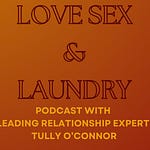In the intricate dance of relationships, there’s an important and transformative skill that is necessary for relationships to thrive — repair. This involves mending connections after strains, disagreements, and ruptures. Whether in intimate relationships, or with family and friends, the ability to repair emerges as a crucial component for thriving, enduring connections.
Often, there's an expectation and desire for relationships to be void of conflicts. This idea is inherently flawed. Healthy relationships naturally involve disagreements, and it's in the act of repair that true resilience and relational health is revealed.
If it was easy, everyone would do it.
All the time.
To build the skill of repair is to lean into discomfort. It challenges our automatic reactions and requires intention and effort. Yet, understanding the profound importance of moving through this discomfort, supports us in making the commitment to the repair process.
At the core of this need for repair is our memory-based nature. We use all past memories to make split decisions and reactions, in a nanosecond. Each rupture, left unattended, becomes a thread in the fabric of distrust and perceived lack of safety. Unresolved issues accumulate, creating an unconscious narrative that colours our perception of our partner's trustworthiness. The act of repair, both in the moment and addressing the issues of the past, serves as a vital tool to build a core unconscious feeling of trust and safety, instead of the opposite.
Our brains are wired with what’s called a “negativity bias”. Our focus naturally gets drawn to potential threats, meaning that left to our own devices we will anchor negative experiences more strongly into our memory than positive ones. Repairing in the moment becomes a conscious effort to tip the scales in favour of positive experiences.
The repair process extends beyond the surface of current relationships. Unconscious beliefs, shaped by past experiences and conditioning, impact on our present-day perceptions. Repairing involves not only the present relationship but also a journey into the depths of our past beliefs, exploring the threads that get in the way of empathy, clear communication, and intimacy.
Even though it’s challenging, the journey of repair is vital for relationships to thrive.
It’s a non-negotiable.
Focusing on the present moment and honing the skill of repairing now, lays the foundation for a more secure attachment. And one of the fastest ways to do this is surround yourself with people who are committed to doing the same.
In upcoming articles I’ll speak into practical tools for the repair process. Your questions and feedback are welcomed and I’ll use them to shape future publications.
Big love,
Tully
By the way: For those committed to cultivating thriving relationships, early enrolments for Liberating Love Relationship Mastery are open until Monday AEST (11th Dec AEST. 4 days from when this article was shared) This means saving $800 on enrolment’s to thank the couples who are ready to claim their spot. Regular enrolments will reopen early next year.











